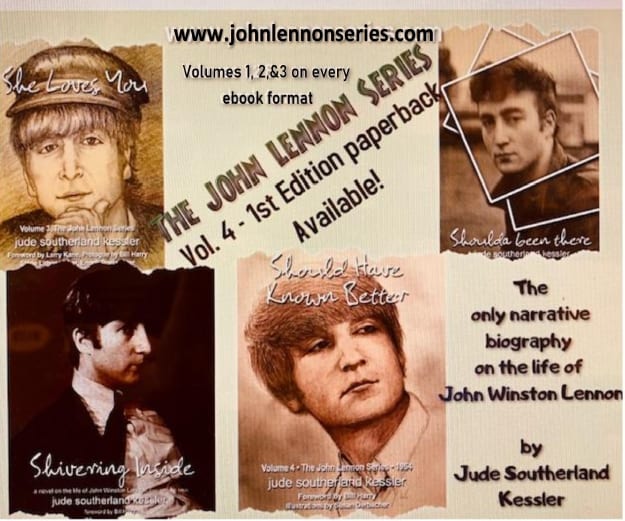by Jude Southerland Kessler
https://www.johnlennonseries.
If you’re like most Louisianians, we’ve spent the last 3-4 weeks, severely pruning back dead Japanese magnolia branches, cutting mushy agapanthus plants to the ground, snipping off lost ginger lilies, and praying for our sweet olive trees. My husband and I have spent hours in the yard, trying to save what was brutalized by the ice and snow of late February.
I stare at the once-immense asparagus ferns that my mother cultivated and hope that the one living frond will find the strength and inspiration to prosper. And I beg my wood ferns and maidenhair ferns to “give it a go!” I’ve sweet-talked the sticks that used to be loropetalum.
Then, I think of George Harrison. I think of George in those dim and sunless days of 1968, after The White Album, when (for the most part) his genius was ignored and his contributions to The Beatles were largely overlooked. It was “the winter of [his] discontent,” 1but in those seemingly barren days, instead of despairing, George began planting.
When John and Paul shrugged him off and pushed their own projects forward, it would have been easy for George to buy into the attitude that he was “second best.” (Or third best, as it were.) Instead, continuing to believe in himself and in his ability to be fruitful, George used that fallow time to begin writing “My Sweet Lord,” “Isn’t It a Pity?” and “What is Life?”. Fully confident that “it’s not always going to be this grey,” 2George began quietly preparing for a bright harvest that would shock those who had swept him aside.
He began penning, editing, and improving the songs that would – almost two years later – grace his double GRAMMY-nominated (for “Best Album of the Year” and “Best Single of the Year”) album. He began creating All Things Must Pass. In a very dark time, George quietly tilled the fertile soil of his imagination, carefully planting seeds that would flourish into that triple-album bearing the greatest creative work of his career.
In a wry twist of fate, had The Beatles embraced George’s plethora of compositions during 1968 and 1969, the accomplished Harrison would not have compiled the elegant and varied catalog that fills All Things Must Pass. As music critic Ritchie Unterberger adeptly observed, the album was filled with “[George Harrison’s] backlog of unused compositions from the late Beatles era.” 3Indeed, the “shadowy winter” that engulfed George’s last two years as a Beatle was necessary; it furnished a quiet time for him to create a genius solo album.
And so, like George, I resolve to plant anew. I resolve to make the most of an uncomfortably bleak season. Instead of letting winter’s storms defeat me, I resolve to use it as an instrument to come back stronger – full of fragrant blooms.
I wish you a time for planting, too. I wish you a spring full of quiet moments in which to plan and grow. May every season of 2021 be used to good purpose … even the most frozen moments that seem to have no potential. George found them to be a blessing. May we as well.
1 Shakespeare, William, from Richard III
2 From “All Things Must Pass” by George Harrison on the All Things Must Pass LP, 1970.
3 Richie Unterberger, Review: All Things Must Pass LP, AllMusic.com, https://www.allmusic.com/

Visit the Official Website of John Lennon Expert and Author Jude Southerland Kessler: https://www.johnlennonseries.com


























